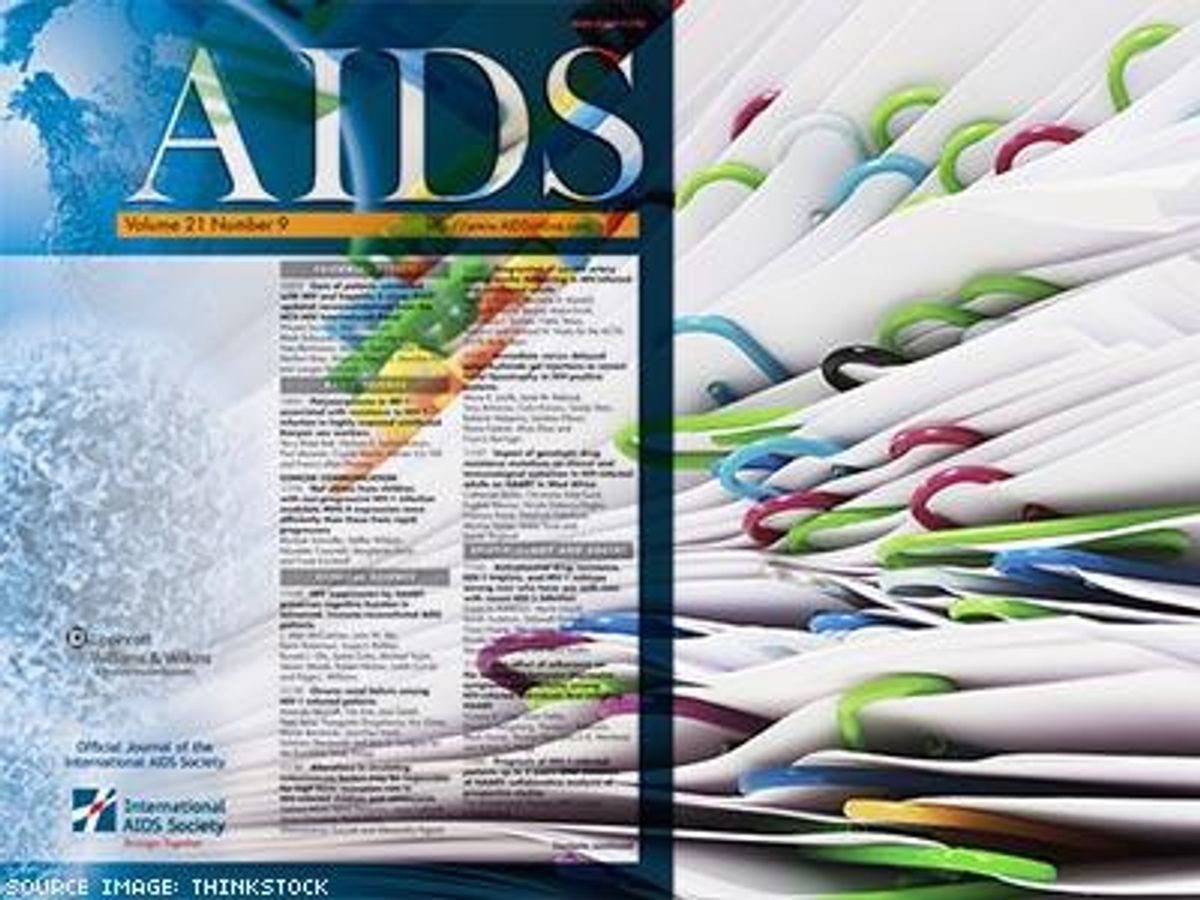Finally, there's a scientific journal that believes there needs to be more data on transgender people and HIV; and is doing something about it. Dedicating a special issue and calling for more studies, The Journal of the International AIDS Society (JIAS) is seeking abstracts for a supplement on transgender health and HIV.
In the call, JIAS pointed to a 2012 systematic review and meta-analysis, which reiterated that transgender people, especially trans women who have sex with men, face a disproportionate rate of HIV infection. According to JIAS, that international study showed that 19 percent of trans women (in 15 countries) will likely become HIV positive.
“This represents 49 times the odds of prevalent HIV infection compared to other adults,” JIAS stated. Furthermore, the 2014 Global AIDS Response Progress Report suggests that HIV prevalence among trans women sex workers is nine times higher than for their cis-gender (non-trans) female counterparts, and three times higher than for male sex workers.
(Read more about why trans women's HIV rates are so high here.)
Data on trans men and HIV is sparse, but JIAS suggested that trans men who have sex with men (MSM) were likely to experience a heightened vulnerability to HIV.
“Widespread transphobia, stigma, and discrimination perpetrated against gender variance places trans men and women at substantial risk for both sexual violence and HIV infection,” JIAS noted.
The 2014 National Commitment and Policy Instrument report indicated that only 39 percent of countries reporting address trans people in their national AIDS strategies. Last year, for the first time, the The World Health Organization’s Consolidated Guidelines on HIV Prevention, Diagnosis, Treatment and Care for Key Populations included specific recommendations for trans people.
With this special issue, JIAS said it “seeks to expand the evidence base on HIV among transgender people and better enable funders, policymakers, and implementers to develop HIV policies and programs based on the most current trans-specific knowledge.”
The journal “strongly encourages” both submissions by trans authors and submissions that address a variety of gender identities, as well as submissions “about young people and partners of trans individuals.” Qualitative and quantitative data-based abstracts are preferred.
Submission topics may include but are not limited to:
- HIV clinical and prevention issues for trans people (e.g., HIV drug interactions with gender-affirming medical interventions, integration of gender-affirming medical interventions and HIV care services, mental health care and other service integration needs, substance use)
- Epidemiological and behavioral data addressing HIV risk and prevalence among trans people in countries and regions with little published research (e.g., sub-Saharan Africa and Central Asia/Eastern Europe)
- Research and practice addressing HIV-related social and structural issues among trans people, including but not limited to issues such as marginalization and stigmatization, isolation, depression, vulnerability to violence, agency-deprivation, and inadequate standards of care
- Evaluations of service delivery and community-based interventions to improve engagement in the HIV service cascade by trans people
- Field-based policy and programmatic case studies of HIV prevention, care, and treatment efforts for trans people, especially those meaningfully engaging or led by trans people
Guest editors for the special issue are JoAnne Keatley, of UCSF’s Center of Excellence for Transgender Health; Tonia Poteat, an Assistant Professor at Johns Hopkins Bloomberg School of Public Health; Chloe Schwenke, who serves in the Obama Administration as Senior Advisor for LGBT Policy for USAID; and Rose Wilcher, Director of Research Utilization at FHI 360 and in charge of knowledge management for the Linkages across the Continuum of HIV Services for Key Populations Affected by HIV project.
Abstract submissions are due May 29, 2015. Find more information here.













































































